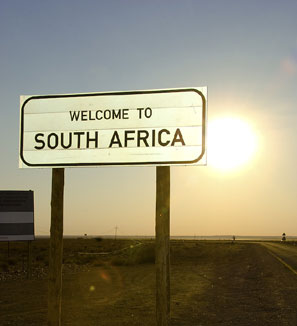
At a Brooklyn church in December, New York’s then mayor-elect, Bill de Blasio, praised Nelson Mandela for the late South African leader’s refusal to tell citizens only what they wanted to hear. “Part of Mandela’s brilliance was acknowledging difficult truths and then guiding people through them,” de Blasio said. Now Mayor de Blasio is preparing his first State of the City address, which he’ll deliver Monday. He’s been pushing Albany lawmakers to let the city set its own minimum-wage level, and it’s likely he’ll raise the issue again in his speech. But if the mayor really wants to emulate Mandela’s truth-telling, he should look closer at the example of South Africa, which demonstrates the damaging effect of wage levels set higher than the labor market will bear. De Blasio might then acknowledge his own difficult truth, one pertaining to economics: minimum- and “living-wage” laws put the poor at greater risk of unemployment.
South Africa is by far the most robust and advanced economy in sub-Saharan Africa. Those who visit (as I did for two weeks last October) encounter a place which has not only made a stunning transition from apartheid, but which also boasts a rich reserve of natural and mineral resources, a solid legal system, an enviable transportation infrastructure, a robust free press, a well-developed banking sector, and a vibrant stock exchange. Its agriculture and viniculture are world-class. Young creative types flock to Cape Town, a city as beautiful and exciting as San Francisco.
Finally, a reason to check your email.
Sign up for our free newsletter today.
Yet, cultural and economic advantages aside, South African unemployment is at desperately high levels. The official rate is 25 percent; unofficial estimates put it as high as 37 percent. Youth (under age 24) unemployment, officially reported at 49.8 percent, is palpable for the affluent visitor, as teenagers and young adults selling souvenirs pound on train windows. Street beggars are a common sight. Perhaps most dishearteningly, overall unemployment today is at least double what it was in 1994, when apartheid ended and Mandela assumed the presidency. The estimated rate then was 13 percent.
No single cause accounts for South Africa’s persistently high joblessness, though high crime and an overvalued currency have played a role in diminishing investment in the country. But the crucial factor—the one to which de Blasio should pay more attention and to which Mandela unfortunately paid too little—is what economists euphemistically call “labor-market rigidity.” Translated, this means union power. South Africa’s powerful labor unions are enmeshed in a cozy and longstanding alliance with the ruling African National Congress. They have used their influence to set legal wages at rates too high for small or new businesses to afford.
The relationship between the ANC and its union allies is not unlike the relationship between Mayor de Blasio’s Democratic Party and New York City’s public- sector unions—and the power de Blasio seeks to raise city wages likewise resembles the power the ANC already holds in South Africa. The South African government oversees and approves collective-bargaining arrangements between major employers and labor unions—and then, incredibly, enforces those same high-wage levels for all firms in the sector, even those not party to collective bargaining themselves. Imagine if New York City negotiated a “living wage” for workers at firms doing business with government—say, contractors providing building services—and then made that same wage apply across the board in the industry, even to small start-ups.
“There is little doubt that wage agreements, which are invariably above the inflation level, have created a relatively entrenched working class elite, at the expense of non-unionized workers,” says University of Cape Town political scientist David Welch. UCT economist Sean Archer notes the result: “It needs no economic savvy whatever to realise that this benefits unions and probably most large employers who bargain collectively, but it is highly burdensome for smaller employers and is the death-knell for the unemployed, who cannot bargain to work for lower wages.” A June 2007 National Bureau of Economic Research paper confirmed that picture: “We find, for example, a persistent union wage differential suggesting that unions are keeping wages higher for union members. This is good news for employed union members, but it poses additional challenges to addressing the unemployment problem.” The country’s “bargaining councils,” writes John Kane-Berman of the South Africa Institute of Race Relations, “violate both democracy and basic rights.”
Even the New York Times has acknowledged that minimum and “living” wage laws often hurt the people they’re meant to help. In a 2010 article about factories being shut down for not paying the minimum wage, and subsequent protests by employees put out of work, the Times headlined its coverage: WAGE LAWS SQUEEZE SOUTH AFRICA’S POOR. Put another way, when the government gets involved in setting wage levels, it cuts off the lowest rungs on the economic ladder, making it harder for the poor to find work. The benefits of such laws accrue mostly to those who already have jobs.
Now that sounds like a tale of two cities.